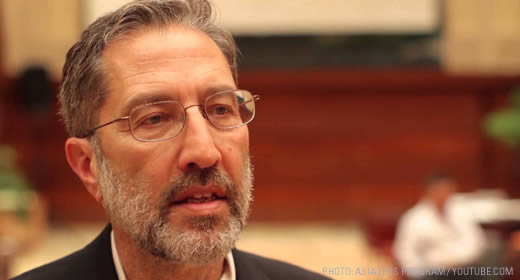
Alan Miller (MPP/JD ’74), a climate finance expert who works with the United Nations Development Programme, is helping 11 African countries modernize their weather and emergency warning systems. Miller’s role? Facilitating collaborative public-private investments in new, low-cost technologies that turn existing cell phone towers into automated weather stations.
“Until very recently, the primary technology fundamental to modern weather systems has been sophisticated, capital intensive, difficult-to-maintain radars and dopplers—not a great fit for cash-strapped countries,” says Miller. “One expert told me that the way to think about a radar system is that it’s roughly the same as a small jet aircraft in its sophistication, cost, and service requirements. As you can imagine, that’s not a tremendously good technology for developing economies.”
Miller goes on to describe some of the tragic consequences. Some of them, like the crops ruined by floods or drought, are economic. Others, like the fishermen who head out in small boats without an inkling of the severity of the coming storm, are human. But local weather systems could help to prevent some many of them.
“Now, for tens of thousands of dollars rather than hundreds of thousands, we can create automated weather stations on cell phone towers—which are all across Africa—with no moving parts, a little solar panel, a battery pack, and a sensor that picks up lightning in the clouds. That will save lives, and produce enormous short and long-term economic and social benefits.”
To facilitate this conversion, Miller pulls together government, philanthropic, and business leaders to launch a conversation, to offer technical support, and to provide some startup funding. "The details are complicated, but the work is ongoing,” says Miller. “It's really exciting to know that you can help people."